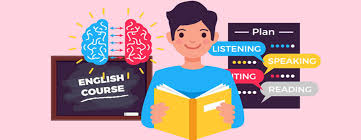


About Us Section


To speak English well, you need to be able to do several things at the same time: know (and choose) suitable vocabulary, use the right grammar and sentence patterns, and produce the correct sounds, stress patterns, rhythm and intonation.
IELTS

English is often the primary language of instruction in higher education and many specialized courses. Mastering spoken English opens up access to global educational resources, research, and academic networks.

Speaking English fluently can boost your confidence. Being able to express yourself in a widely spoken language can make you feel more comfortable and empowered in social and professional situations

Knowing spoken English can greatly ease travel. Many tourist guides, signs, and services worldwide use English, which can make traveling to foreign countries smoother and more enjoyable.
Importance Spoken English Course




Need of Spoken English Course
-
Taking a spoken English course can be highly beneficial if you’re aiming to improve your fluency, confidence, and overall communication skills in English.
-
Fluency and Clarity: Practicing spoken English with instructors and peers helps you speak more fluently and clearly.
-
Vocabulary Expansion: A good course will introduce new vocabulary and teach you how to use it naturally in conversations.
-
Pronunciation and Accent: You’ll learn to pronounce words correctly, helping you sound more natural and reducing misunderstandings.
-
Public Speaking: Spoken English Courses often include exercises for speaking in front of others, making it easier to speak up in group settings.
-
Interpersonal Skills: Improving your spoken English skills also builds confidence when interacting socially or professionally with English speakers.
-
Career Advancement: Strong English skills are valued by employers, particularly in fields that require communication with international clients.
-
Interview Preparation: Many spoken English Courses include mock interviews to help you prepare for real-life job interviews in English.
